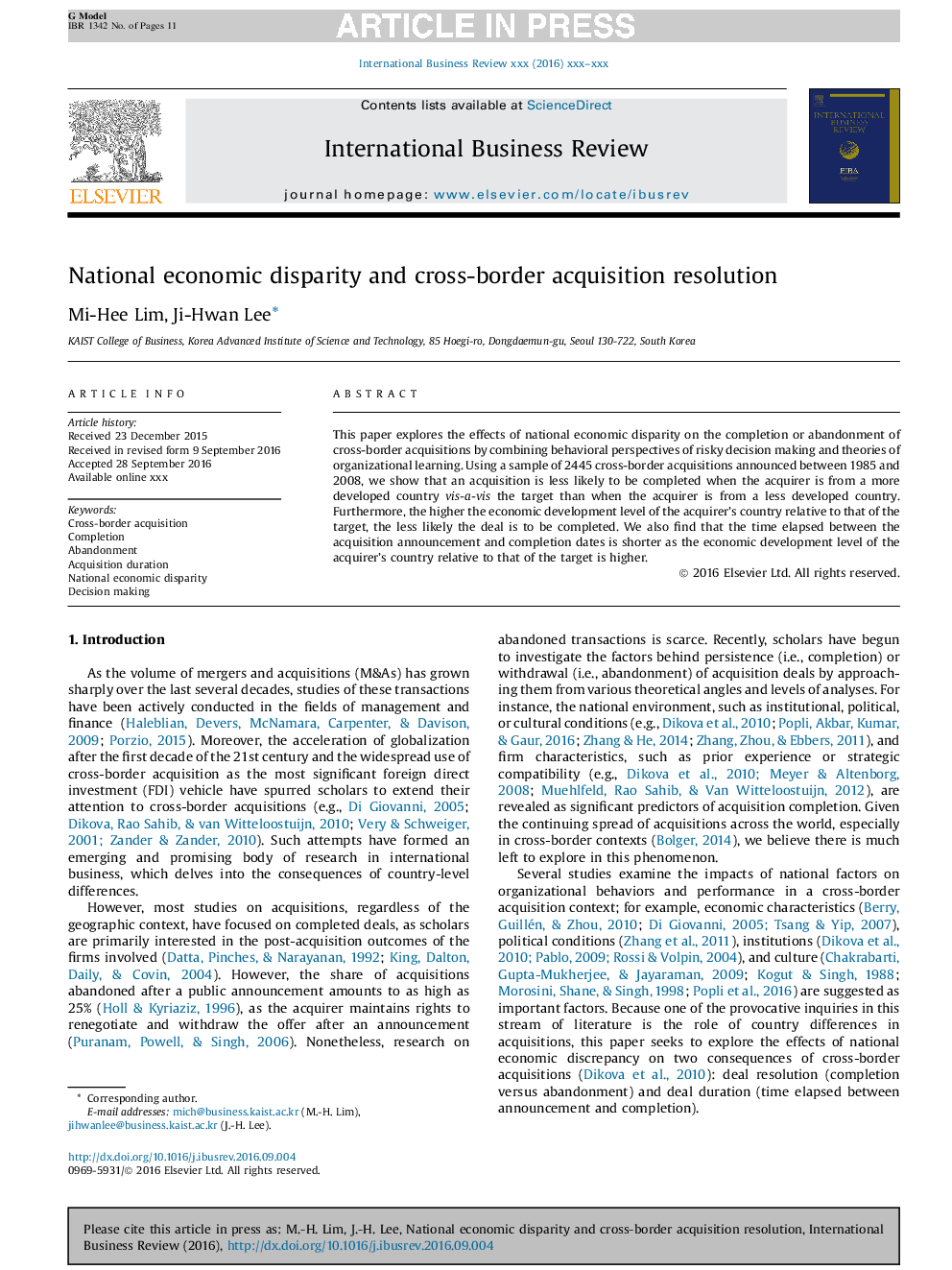| Article ID | Journal | Published Year | Pages | File Type |
|---|---|---|---|---|
| 5106990 | International Business Review | 2017 | 11 Pages |
Abstract
This paper explores the effects of national economic disparity on the completion or abandonment of cross-border acquisitions by combining behavioral perspectives of risky decision making and theories of organizational learning. Using a sample of 2445 cross-border acquisitions announced between 1985 and 2008, we show that an acquisition is less likely to be completed when the acquirer is from a more developed country vis-a-vis the target than when the acquirer is from a less developed country. Furthermore, the higher the economic development level of the acquirer's country relative to that of the target, the less likely the deal is to be completed. We also find that the time elapsed between the acquisition announcement and completion dates is shorter as the economic development level of the acquirer's country relative to that of the target is higher.
Related Topics
Social Sciences and Humanities
Business, Management and Accounting
Business and International Management
Authors
Mi-Hee Lim, Ji-Hwan Lee,
